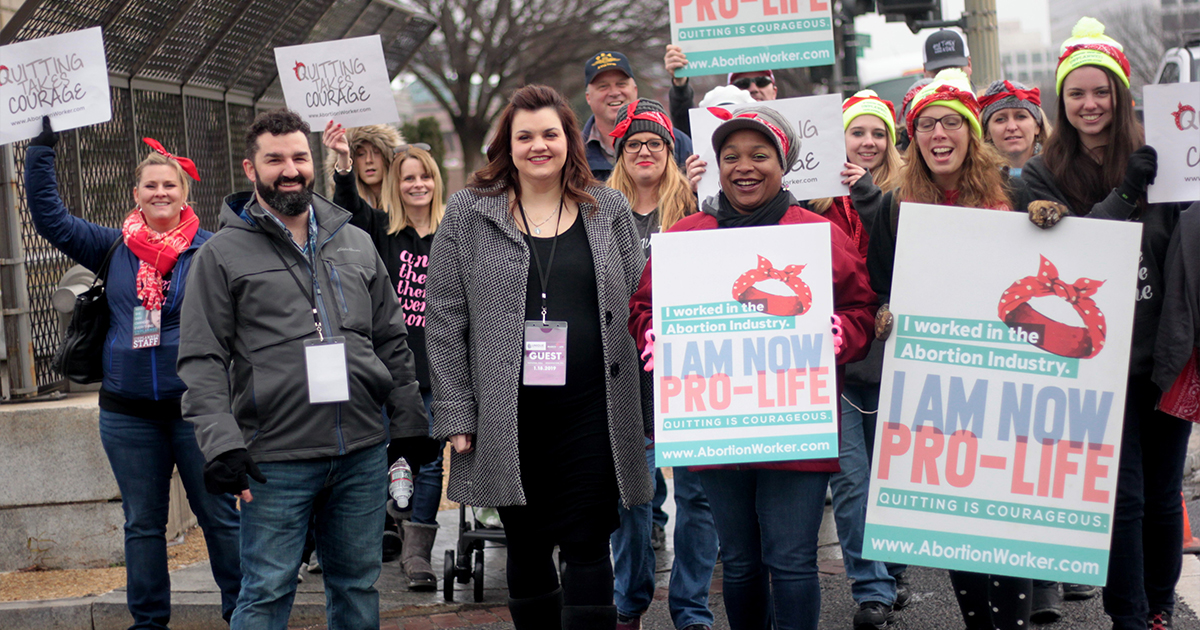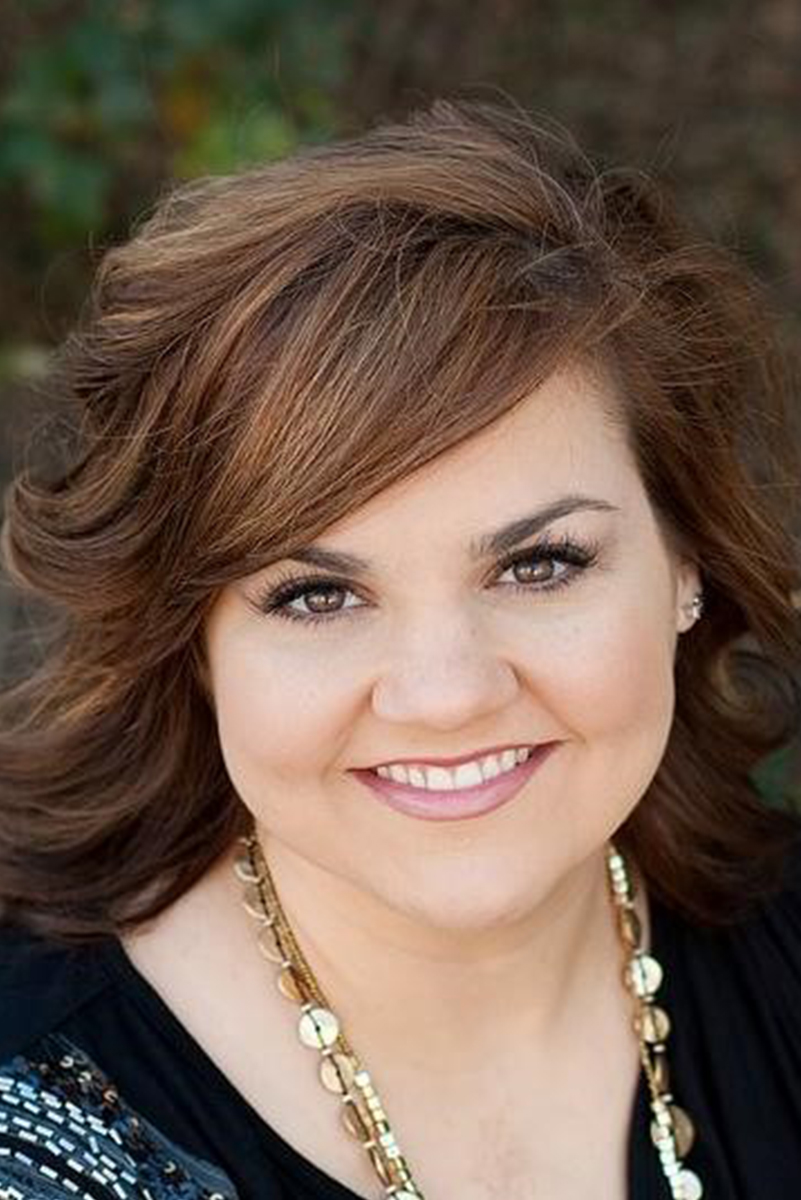
By Holly Scheer
“Unplanned,” a motion picture about Planned Parenthood director turned pro-life activist Abby Johnson, opens in theaters across the country on March 29. Holly Scheer, a member of Our Savior Lutheran Church in Cheyenne, Wyo., recently interviewed Johnson about both the movie and Johnson’s own life. This story is based on that interview. Next week, Reporter will publish Scheer’s review of the movie “Unplanned.” — Ed.
At one time, Abby Johnson was one of the nation’s youngest directors of a Planned Parenthood clinic. She also had two abortions behind Planned Parenthood’s doors.
Now Johnson is one of the United States’ foremost pro-life advocates. Her story, particularly her time at Planned Parenthood and her later change of heart on life issues, is the subject of the upcoming movie, “Unplanned,” based on Johnson’s book of the same name.
Johnson grew up in a Baptist family in New Roads, Louisiana. She attended Texas A&M University in College Station, Texas, and Sam Houston State University in Huntsville, Texas, graduating with degrees in psychology and counseling.
In college she became pregnant with her first child and decided with the baby’s father to have an abortion. After she and the father were married, Johnson became pregnant again, got another abortion and got divorced. She began working at Planned Parenthood after graduating from college and stayed with the organization until 2009.
Johnson is candid about her time with America’s largest provider of abortion services, a time during which she estimates having overseen at least 22,000 abortions. She approached Coalition for Life Director Shawn Carney for help in leaving Planned Parenthood after assisting with the ultrasound-guided abortion of a 13-week old baby, an experience she details in the first chapter of her book.
Johnson went on to become the founder and CEO of the nonprofit organization And Then There Were None, which focuses on helping abortion-clinic workers leave the industry as she did. She says her experience working alongside abortion providers and other clinic staff has shaped the way that she interacts with current abortion workers today.
It’s through that experience — as first a post-abortive woman, then one who guided other women into Planned Parenthood, walked past the pro-life demonstrators and finally worked as a clinic director — that Johnson says she has learned what does and doesn’t work when trying to reach women considering abortion.

Peaceful and prayerful approach
One of the things she has learned is a preference for peaceful demonstration and prayer over graphic signage and angry protests outside clinics and at pro-life events.
“The only thing you’re doing [by protesting outside clinics] is creating a safe haven inside the abortion clinic. … That is the opposite of what you want to do,” Johnson says.
Instead, she points to work like that of Sidewalk Advocates for Life, a Texas-based group that provides training and materials for a “peaceful, prayerful, law-abiding approach” for talking to mothers as well as workers at clinics. According to Johnson, Sidewalk Advocates for Life has helped save over 5,000 babies.
Johnson also emphasizes the power of prayer to change the lives of families affected by, or considering, abortion.
“You’re never going to see all of the fruits of your labor, not this side of heaven,” she observes. “I think that we have to have faith that we are making a difference. ….
“I can’t even tell you how many times … I’ve been praying outside of a clinic when a woman has walked up and said, ‘You know, I have an abortion appointment today and the whole way driving here, I was praying that God would show me a sign not to do this. And I pulled up and you guys were out here praying, and that’s my sign, and I’m not going to have this abortion.’”
Johnson, who is now a Roman Catholic and mother of seven children with her second husband, believes children can be taught about abortion from a very young age. She started taking her eldest daughter to clinics to pray on the sidewalk at the age of four.
“I would bring her toys and coloring, you know, stuff that she could do while we were there,” Johnson describes. “She would say … what are we doing here? And I would say … [we’re] here to pray for mommies and to pray for the babies in these mommies’ tummies. …
“The older she got, she started asking more questions. … We figured once she started asking questions, that was when she was ready to hear more information.”
Johnson believes pro-life people have a much greater impact on abortion clinics than they may realize:
“[At] the last Planned Parenthood conference I ever attended, I went into this workshop called ’Anti-Choice Harassment.’ It was about people that were out on the sidewalk. …
“Planned Parenthood had looked at the no-show rate in their facilities. … The typical no-show rate was anywhere between 15 and 20 percent. But they found that when there was peaceful activism on the sidewalk, people reaching out to women going in, the no-show rate went up at some clinics to as high as 75 percent.”
Johnson says the movie version of “Unplanned” follows her book closely and that although she didn’t get to visit the set often, she and Ashley Bratcher, the actress who plays her, kept in close contact during filming. She says the film is not only for those who share her view of abortion, but also for those who don’t:
“They [abortion supporters] need to see what they believe and what they support. … This film is … not embellished, it’s not over-dramatized. … [It] is just the raw truth about abortion, about the women who choose abortion and about the abortion industry. … For better or worse, this film is going to expose them to truth.”
A ‘sin problem’
At the 2018 National March for Life in Washington, D.C., Peter Slayton, manager of social media for the LCMS, caught up with Johnson at the Expo that is held every year before the March. They discussed the genesis of And Then There Were None, as well as effective ways for pro-life people to engage with both abortion workers and families affected by abortion.
Slayton noted the unique approach of And Then There Were None: instead of focusing on legislation aimed at reducing the number of abortions, the organization focuses on reducing the availability of abortion by reducing the number of people who provide it. (So far, And Then There None says it has helped around 500 workers leave the industry.)
Johnson responded by acknowledging that legislation is important but that, at its root, abortion is a “sin problem” that will not be solved by legislation alone: “We have to work on conversion. We have to work on change of hearts.”
Slayton noted, “Our most natural sinful instinct is to justify our own actions, and especially if there’s pain in that action, we’re going to try to justify it all the more in order to hide that pain.”
Johnson agreed, pointing to Jesus Christ — not rationalization — as the answer for those hurting from abortion: “When I left Planned Parenthood, I learned that if you are trying to justify something, then you probably shouldn’t be doing it. … The truth of Christ doesn’t need justification. It doesn’t need any rationalization.”
On the subject of how to help those affected by abortion, Slayton and Johnson talked about the importance of grace and forgiveness for all people. Johnson emphasized the need to separate the abortion industry from those working in it: “We all sin. I just sin differently. … You may not understand [my sin]; I may not understand your sin. That’s not for us to understand. … What’s to understand is that grace is available, and mercy is available to everyone equally no matter what you’ve done.”
Watch Slayton’s full interview with Johnson below.
Holly Scheer (hmscheer@me.com) is a pastor’s wife and mother of four.
Posted March 21, 2019




